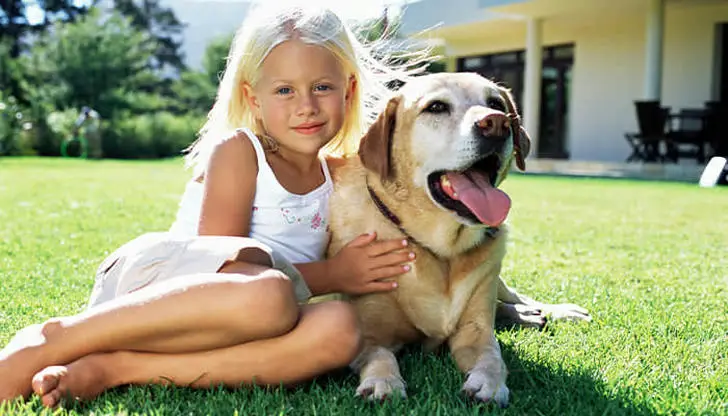The "dog fever" under the epidemic blockade: are you really ready to get a pet?
Advertisement

In March 2020, as the UK, parts of the US and some other places went into lockdown for the first time, millions of people suddenly started spending a lot of time at home, with the internet as their friend.
On social media, some people seem to enjoy playing with their dogs, uploading cute photos and recording animal-themed jitterbug videos. It sends the message that a furry friend will make the big lockdown period less lonely.
Many people used to put off getting a dog because they had so little time at home, and they have more time after the Great Lockdown. They saw the embargo as a great opportunity to get a pet.
Now that almost a year has passed, some frustrated pet owners are turning in their behaviorally challenged, older pets to animal shelters, and pet sales websites have many pets for resale.

A month ago, Jessica decided to get a dog.
Jessica is currently unemployed, and with the new crown outbreak restrictions still in place in Texas, where she lives, it seemed like a perfect time to bring home a new family member.
Jessica and her partner, who both grew up with dogs, considered themselves experienced owners and already had a cat. When they began researching dogs, they carefully considered which breed would be the best fit. They wanted a dog that was both easy to train at home and friendly with cats. In the end, they decided to get a Labrador.
At the stray dog shelter, they met a Labrador named Buddy, who was just over a year old.

Buddy was well behaved, calm and well mannered, and the shelter said he was well trained, just what Jessica and her partner wanted. But after bringing him home, Buddy seemed to turn into a different dog.
"He wasn't trained at all," Jessica said, claiming that Buddy was potty trained but didn't know basic commands, such as sit and come.
Also, Buddy would sometimes suddenly become energetic and show no signs of calming down after a month.
Jessica and her partner made the difficult decision to turn Buddy over to a dog rescue group, and they hope to find Buddy a suitable home. They are applying to different animal shelters. Although they are disappointed that fostering Buddy has failed, they don't feel guilty about what has happened.
"If you get a dog and after a while you realize you can't control it anymore, I don't think it's actually fair for him to have it because you can't give them the best life possible."

"I thought I was ready."
Nearly 5,000 miles away from Jessica, in southwest England, a young couple also found problems in raising Labradors.
Mara Hernandez, a zoologist who also grew up with dogs, and her husband planned to get a puppy two years ago, but the timing was never quite right until they started working from home last year.
At that time, they brought home their Labrador, Puggy. Although Marla has spent time with animals, she says the first month was very difficult.
"I tried to spend time reading, watching trainer videos on YouTube and reading books about puppies, so I thought I was ready," she says. She and her husband both took two weeks off work to help the puppies settle in.
But once they were back to work and school, the stress of being on constant alert while doing housework damaged Marla's mental health, and anxiety she hadn't had in years returned.

You can't take your eyes off them because you don't want them to chew something that might be bad for them, it's kind of like having a toddler that you always have to keep an eye on," she said.
"So I'm really stressed out because I can't do any work. I always have to babysit him unless he's sleeping ...... I can't even take a bath alone. I have to do all my chores in one breath while he's sleeping."
Just three weeks after bringing Paige home, Marla posted online asking for help, saying she was considering returning the dog to its breeder. One comment replied that it didn't sound like she was ready for a dog.
Last November, British Prime Minister Johnson announced a second lockdown when Mara and her husband were on the verge of returning their dog to the breeder. Before the lockdown began, they moved in with Marla's in-laws. They found that things became much easier with more people to care for the puppies.
Finally, with the support of Marla's in-laws, the Marla's decided to keep Pudge, who is now four months old.
Marla says that if she hadn't lived with her in-laws during the embargo, they probably would have found a new home for Pudge long ago.
Pets for sale
Marla and Jessica aren't the only ones feeling overwhelmed by their puppies. Many people are choosing to sell their dogs online rather than return them to breeders or animal organizations.
Last year, the number of "buy puppy" searches quadrupled in mid-March and doubled again in early May in the United Kingdom, and a similar trend has been seen in the United States. In many cases, irresponsible breeders raised prices by thousands of pounds as demand for puppies soared.
Then in November, Internet search terms for puppies for sale spiked on Google.
At the time of writing, the British pet trafficking adoption site Pets4Homes was selling a number of dogs, claiming that they were recently purchased but not suitable for them. Most of these dogs are listed at £1,500 or more, with many more at £2,500 or more. Some of them clearly indicate that the owners want to recoup the thousands of dollars they originally paid for the puppies.

For example, an 8-month-old beagle was sold because its owner "realized it wasn't suitable for a city apartment or for two working people.
The BBC contacted Pets4Homes, who did not provide the exact number of older dogs and puppies recently sold. A spokesperson said they had seen no evidence of a surge in puppy sales and that "on certain dates in January 2021 we saw significantly fewer puppies up for sale or adoption on Pets4Homes than in the same period in 2020."
However, information on such sales confirms the concerns of animal welfare agencies, who often warn that the number of puppies abandoned due to the outbreak is on the rise.
Susan Botherway, manager of the RSPCA's Mount Noddy animal shelter in Chichester, told the BBC that it had recently received a number of puppies from owners who felt they were unable to care for them. One of the puppies, a cross between a Jack Russell terrier and a poodle named Robbie, hadn't seen anyone but his owner in the eight months since he was born.
Eventually, Robbie was adopted. But not all dogs are lucky enough to have someone adopt them, says Boswell.

Bothwell also warns people not to buy puppies online through websites or social media. In the worst case scenario, buyers may inadvertently support puppy mills where dogs are raised in poor conditions. Some unethical dog breeders may also try to illegally sell puppies under eight weeks old.
The RSPCA fears this will become a trend: because the UK is now in the midst of another round of blockades, it has yet to see the full scale of discarded pets.
Bothwell suggests giving them a call if you're having trouble getting along with a puppy or just don't know where to get one. "Keep in mind that things can change immediately," she said, "and it's always worth preparing a plan if you're no longer able to care for a pet."



